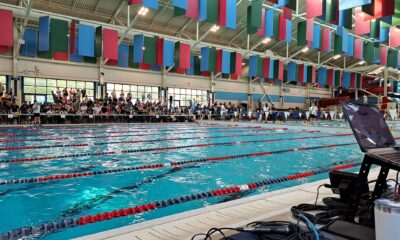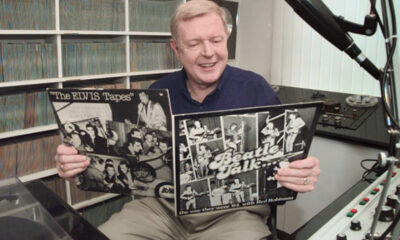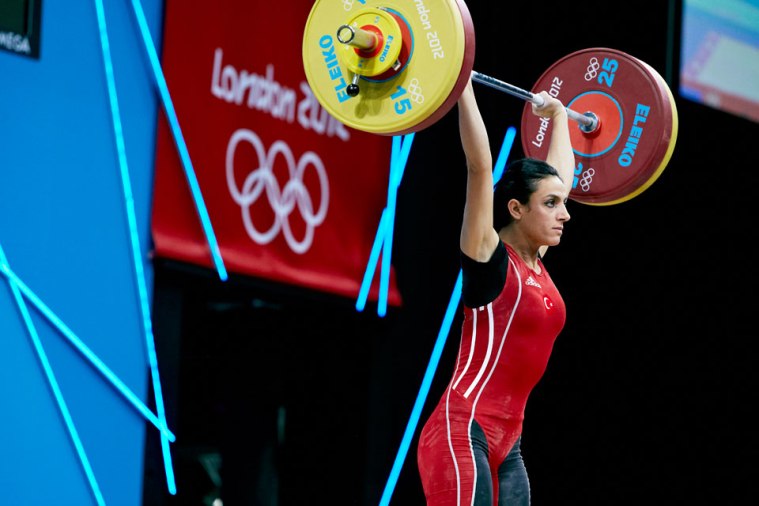
The weightlifting one-hand lifts was on the Olympic Program in the years 1896, 1904 and 1906 and at that time this event was for men only.
The first summer Olympics were held in Athens Greece April 6-15 in 1896 and was the first International Olympic Games as we know them.
The lift is similar to the modern “snatch weight lifting event”, but the competitors were only allowed to use one hand in lifting the weights.
They had to perform lifts with each hand, with the winner determined from the combined score of both hands.
The lifters were allowed three attempts and following these try’s the top three received three more attempts, but all had to be successful.
In the second weightlifting event, held soon after the first, only one hand was allowed in lifting the weights.
He was injured in the first event and subsequently he (Viggo Jensen) and was could only lift enough to earn weight to earn him a Silver Medal.
Launceston Elliot out lifted all of the other athletes and was on his way to winning the first Gold Medal for the UK.
Two Greek weightlifters shared the Bronze Medals and in total seven men from five nations competed in the event.
As a result of Ancient Greece being the birthplace of the Games, Athens was considered to be an appropriate choice to stage the inaugural modern Games.
With Athens being the birthplace of the games, it was discussed during a congress, that was organized a French pedagogue and historian (Pierre de Coubertin) that this be made official.
Despite many obstacles and setbacks, the 1896 Olympics were regarded as a great success.
The Games had the largest International participation of any sporting event, during that time period and the only Olympic stadium used in the 1800s was the Panathinaiko Stadium, thus the choice of location.
The weightlifting one-hand lifts was on the Olympic Program in the years 1896, 1904 and 1906 and at that time this event was for men only.
The first summer Olympics were held in Athens Greece April 6-15 in 1896 and was the first International Olympic Games as we know them.
The lift is similar to the modern “snatch weight lifting event”, but the competitors were only allowed to use one hand in lifting the weights.
They had to perform lifts with each hand, with the winner determined from the combined score of both hands.
The lifters were allowed three attempts and following these try’s the top three received three more attempts, but all had to be successful.
In the second weightlifting event, held soon after the first, only one hand was allowed in lifting the weights.
He was injured in the first event and subsequently he (Viggo Jensen) and was could only lift enough to earn weight to earn him a Silver Medal.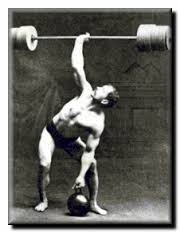
Launceston Elliot out lifted all of the other athletes and was on his way to winning the first Gold Medal for the UK.
Two Greek weightlifters shared the Bronze Medals and in total seven men from five nations competed in the event.
As a result of Ancient Greece being the birthplace of the Games, Athens was considered to be an appropriate choice to stage the inaugural modern Games.
With Athens being the birthplace of the games, it was discussed during a congress, that was organized a French pedagogue and historian (Pierre de Coubertin) that this be made official.
Despite many obstacles and setbacks, the 1896 Olympics were regarded as a great success.
The Games had the largest International participation of any sporting event, during that time period and the only Olympic stadium used in the 1800s was the Panathinaiko Stadium, thus the choice of location.
weightlifting one-hand lifts was on the Olympic Program in the years 1896, 1904 and 1906 and at that time this event was for men only.
They had to perform lifts with each hand, with the winner determined from the combined score of both hands.
The lifters were allowed three attempts and following these try’s the top three received three more attempts, but all had to be successful.
In the second weightlifting event, held soon after the first, only one hand was allowed in lifting the weights.
He was injured in the first event and subsequently he (Viggo Jensen) and was could only lift enough to earn weight to earn him a Silver Medal.
Launceston Elliot out lifted all of the other athletes and was on his way to winning the first Gold Medal for the UK.
Two Greek weightlifters shared the Bronze Medals and in total seven men from five nations competed in the event.
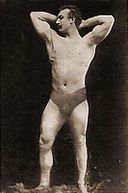 As a result of Ancient Greece being the birthplace of the Games, Athens was considered to be an appropriate choice to stage the inaugural modern Games.
As a result of Ancient Greece being the birthplace of the Games, Athens was considered to be an appropriate choice to stage the inaugural modern Games.
With Athens being the birthplace of the games, it was discussed during a congress, that was organized a French pedagogue and historian (Pierre de Coubertin) that this be made official.
Despite many obstacles and setbacks, the 1896 Olympics were regarded as a great success.
The Games had the largest International participation of any sporting event, during that time period and the only Olympic stadium used in the 1800s was the Panathinaiko Stadium, thus the choice of location.

Advertise With Sportswave

About Sportswave

SICAMOUS HOUSEBOATS

Delta Islanders Jr. A Lacrosse

North Delta Business Association

